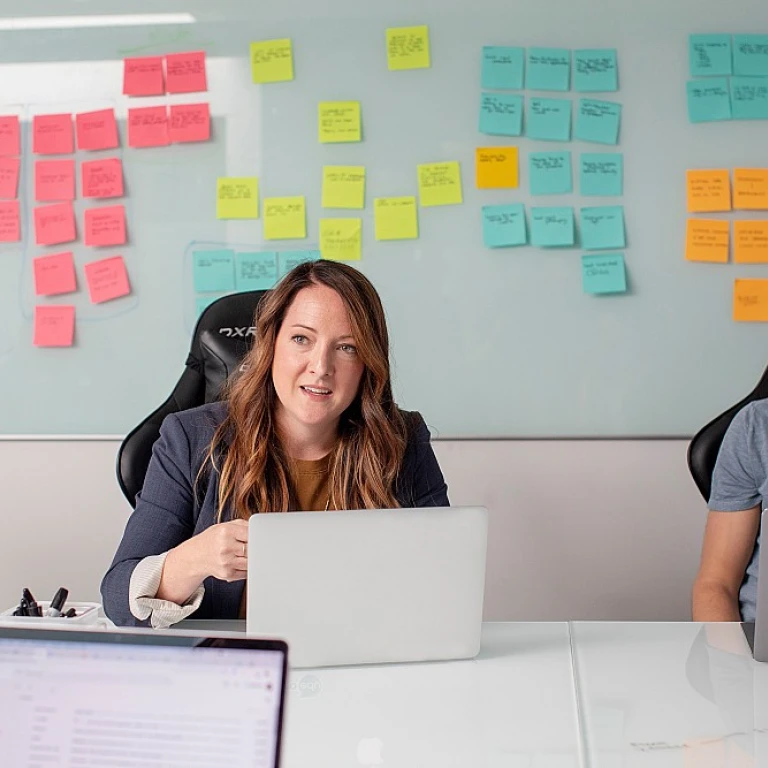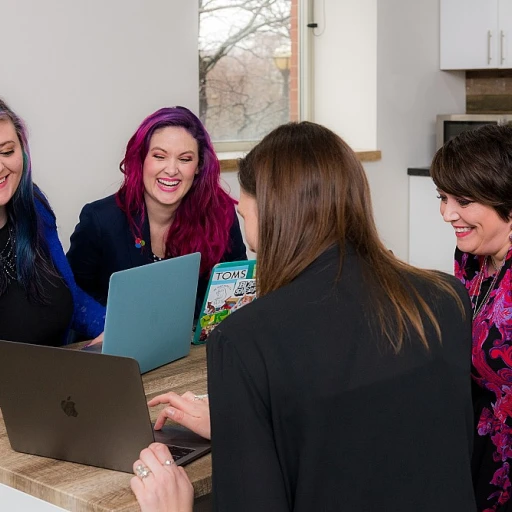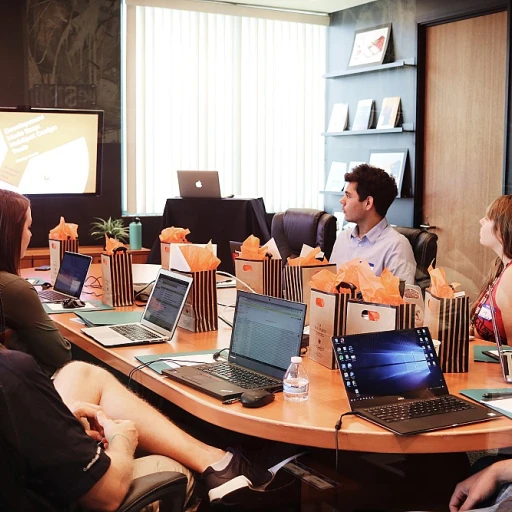
Understanding the New Zealand Office Environment
Embracing the Unique Aspects of New Zealand's Office Landscape
Understanding the office environment in New Zealand is key to effective management practices. The dynamics here are influenced by the country's cultural values, geographic factors, and evolving business trends. New Zealand office spaces often reflect a mix of traditional and modern influences, with an emphasis on collaborative environments that foster creativity and innovation. The acceptance and integration of remote and hybrid work models have become increasingly prominent within this setup. These flexible approaches align well with the Kiwi work-life balance ethos, allowing employees to manage their household duties and family commitments more effectively. Moreover, office managers must strategize around time management and household management principles. Implementing a systematic approach, such as a management binder, can help coordinate cleaning tasks, meal planning, and other daily chores efficiently, thereby benefiting the overall productivity of the office. Establishing management systems that align office plans with household management tasks will indeed facilitate smoother operations. In this context, real estate considerations also play a significant role. The choice of office location, building construction, and amenities available all influence the ease with which daily tasks can be completed. This, combined with effective property management, contributes to a well-organized office environment. To ensure security and safety in the office, especially after hours, it is essential to monitor employee access effectively. This link provides further insights into maintaining secure office spaces. By recognizing these unique aspects, office managers can build effective household and office management systems that support both personal life and work commitments, leading to a more harmonious balance.Adapting to Remote and Hybrid Work Models
Transitioning to Flexible Work Arrangements
The essence of the New Zealand office environment has evolved significantly, emphasizing adaptability in remote and hybrid work models. Transitioning successfully requires understanding the dynamics involved in managing both office and home-based workspaces. This shift presents an opportunity for managers to optimize the use of office space and household management systems to ensure productivity and efficiency.
Implementing Effective Management Systems
To efficiently manage this transition, a structured management system is essential. Integrate comprehensive time management strategies that allocate specific periods to work-related tasks while considering domestic duties like cleaning and meal planning. This structured approach will help balance family life and professional responsibilities, ensuring that neither is neglected.
Streamlining Household and Work Routines
Establishing daily routines aids in creating a predictable flow of activities. Managers can encourage employees to create a home setting that mimics the efficiencies of an office environment. This involves setting dedicated times for chores, grocery shopping, and meal preparation, akin to how tasks are scheduled in the workplace. Utilizing a management binder can assist in organizing household chores effectively, saving valuable time for other activities.
Resourceful Property Management
Office managers can learn valuable lessons from property management practices to optimize space usage. Whether it's setting up a dedicated work corner at home or reorganizing an office to support a hybrid model, efficient space utilization is essential. Training employees in house management skills, such as decluttering and creating comfortable workspaces, can significantly enhance their ability to work efficiently.
Encouraging Collaboration and Social Engagement
Encourage family members and colleagues to participate actively in ensuring a balanced work-life mix. Collaborative decision-making in organizing household and work systems can lead to shared responsibilities, minimizing stress and enhancing productivity. Managers should foster an open dialogue with employees to create a seamless integration of professional and personal routines.
Read more on maintaining security and monitoring employee access to optimize office management.
Sustainability in Office Management
Embracing Sustainability Practices in Office Management
Sustainability is more than just a buzzword in the world of office management. It is a real necessity, particularly in New Zealand, where the environment plays a crucial role in the corporate and social landscape. Understanding the importance of green practices can provide office managers with tangible benefits and align with global trends towards more eco-friendly operations. Firstly, integrating a proper waste management system can be an excellent start to a sustainable office environment. Encourage recycling by establishing designated bins, which not only streamline cleaning tasks but also promote environmental consciousness among staff. Involving all family members, or in this case, team members, in these initiatives can cultivate a collective effort towards reducing waste. Sustainable energy solutions are also a key component in managing office spaces. Investing in energy-efficient appliances and systems can save time and reduce costs. Incorporating smart technology into your property management strategy can automate lighting and temperature control, further boosting this efficiency. Adopting a paperless office system can significantly cut down on paper waste, aligning your management system with sustainability goals. Transitioning to digital systems such as a comprehensive management binder for office documentation can centralize operations and streamline planning. This allows team members to access information easily and efficiently. A sustainable office isn't only about ecological practices; it's also about creating a workplace that promotes health and well-being. Encouraging initiatives like meal planning and turning break rooms into spaces that support nutritious dining can have positive effects on the workforce. Establishing routines in line with health priorities will optimize the productivity of the office environment. Understanding the full scope of how sustainability integrates into office spaces is crucial for effective management. It's about adopting a holistic approach that infuses every aspect of your daily operations, from the little chores to big-picture property management. In doing so, you not only adhere to eco-friendly practices but also create long-lasting benefits for your organization, team, and the wider community. For more strategies on workplace efficiency, you might want to explore celebrating work anniversaries in New Zealand companies, which adds a positive cultural dimension to the office atmosphere. Learn more.Technology Integration for Efficient Management
Incorporating Smart Technology for Seamless Operations
Embracing technology is a fundamental strategy for modern office management in New Zealand. Incorporating smart technology systems can significantly streamline daily office operations, making life easier for managers and workplace households. With the rise of remote and hybrid work models, offices require more than just traditional management methods to ensure efficiency.- Advanced Management Systems: Implementing a robust management system can aid in organizing tasks, scheduling, and documentation. This system will help you manage time effectively and coordinate with family members involved in the workplace environment.
- Integration of IoT Devices: Smart devices can automate cleaning routines, lighting, and climate control, saving time and energy. This not only enhances productivity but also contributes to sustainability efforts, which play a crucial role in New Zealand's office management practices.
- Digital Calendars and Task Managers: Utilize digital tools for meal planning and scheduling chores, thereby simplifying household and office management. These tools can help track cleaning tasks and property management duties in real-time.
- Cloud-Based Systems: Leveraging cloud technology allows team collaboration and information sharing with ease, irrespective of location. This facilitates efficient work processes and supports remote work models, ensuring seamless communication among family members in the workplace environment.
- Customized Management Binders: A customized management binder can assist in organizing daily tasks and routines, ensuring that household management aligns with office operations. This planning tool will help streamline both office life and house management.
Health and Well-being in the Workplace
Promoting a Culture of Well-being
In today’s fast-paced work environment, especially with the shift towards remote and hybrid work models, prioritizing health and well-being in the workplace has become essential. Encouraging a sense of balance between work and life is no longer just a beneficial strategy but a necessity for maintaining productivity and morale.Physical and Mental Health Support
To further support well-being, integrating facilities or programs that promote physical and mental health is crucial. This could include gym memberships, access to wellness apps, or onsite recreational areas. A well-rounded approach catering to both physical and psychological needs will help nourish a healthier work culture.Supportive Work Environment
Creating a supportive work environment involves bolstering communication and providing resources that help employees navigate their responsibilities effectively. Sharing management tips and fostering an open dialogue about work-life balance can nurture a supportive office environment.Legal and Compliance Considerations
Compliance and Legal Frameworks in Office Management
In New Zealand, office managers must navigate a complex landscape of legal and compliance requirements to ensure smooth operations. Understanding these frameworks is crucial for maintaining a productive and lawful workplace. Here are some key considerations:
- Health and Safety Regulations: Ensuring the health and well-being of employees is paramount. This includes adhering to the Health and Safety at Work Act 2015, which mandates a safe working environment. Regular safety audits and risk assessments can help in identifying potential hazards.
- Employment Laws: Familiarity with employment contracts, minimum wage laws, and employee rights is essential. This knowledge will help in managing staff effectively and avoiding legal pitfalls.
- Data Protection: With the increasing reliance on technology, safeguarding employee and client data is critical. Compliance with the Privacy Act 2020 ensures that personal information is handled responsibly.
- Environmental Compliance: As discussed in the sustainability section, adhering to environmental laws not only benefits the planet but also enhances the company’s reputation. Implementing sustainable practices can be a part of your management system.
Effective management involves integrating these legal considerations into daily routines and planning. A comprehensive management binder can serve as a valuable resource, detailing all compliance requirements and helping to streamline tasks. This approach not only saves time but also ensures that all family members involved in office management are on the same page.
By establishing a robust management system, office managers can focus on other critical areas such as meal planning for business lunches or optimizing cleaning tasks, thus enhancing overall efficiency. Remember, a well-organized office is akin to a well-managed household, where each task and responsibility is clearly defined and executed with precision.












